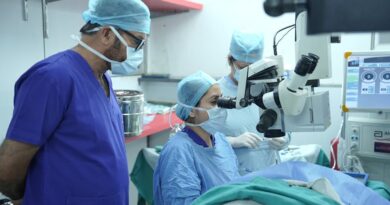Exploring the Link Between Eyes and Brain Health
Did you know your eyes could reveal secrets about your brain health? it’s true! Our eyes are not just windows to the world; they also hold clues to our brain’s condition. Understanding this link can help us take better care of both.
Why Should You Care About Eye Health?

We often think of eye health as separate from brain health. But what if we told you that they are closely connected? When your eyes struggle, it can impact how your brain functions. Good eye health can lead to better brain health and vice versa.
Research shows that eye diseases, such as glaucoma and macular degeneration, can be linked to cognitive decline. Keeping your eyes healthy is not just about good vision. it’s about keeping your brain sharp too.
How Are Eyes and Brain Health Connected?

Lets break down the connection. The eyes are part of the central nervous system. When you look at something, your eyes send signals to the brain almost instantly. This communication is crucial.
Here are a few ways your eyes and brain interact:
- Visual Processing: Your brain processes visual information. If your eyes can’t see well, your brain has to work harder.
- Nutritional Links: The health of your eyes and brain can both benefit from the same nutrients, like omega-3 fatty acids.
- Blood Flow: Good blood circulation is vital. Conditions that affect blood flow can impact both eyes and brain.
What Role Does Aging Play?

Aging is a natural process that affects everyone. As we age, both our eyes and brains may experience changes. But how are these changes related?
Here are some common aging issues:
- Cataracts: This clouding of the lens can make things blurry. It forces your brain to work harder to interpret visual information.
- Memory Loss: Age-related memory decline can be linked to vision problems. If you can’t see well, you may not be able to remember things as easily.
- Increased Risk: Older adults are at a higher risk for both eye diseases and cognitive decline, making regular check-ups essential.
Can Eye Exams Help Detect Brain Issues?

Yes! Regular eye exams can do more than just check your vision. They can help identify potential brain health issues.
During an eye exam, an optometrist can spot signs of serious conditions like:
- Diabetes: High blood sugar can affect both eyes and brain health.
- High Blood Pressure: This can damage blood vessels in your eyes, which may also affect blood flow to your brain.
- Multiple Sclerosis (MS): Changes in vision can be an early sign of MS, a disease that affects the brain and spinal cord.
What Can You Do to Protect Your Eyes and Brain?
The good news is there are many ways to support both your eyes and brain. Here are some actionable tips:
- Eat a Healthy Diet: Foods rich in antioxidants, like berries and green leafy vegetables, help protect your eyes and brain.
- Stay Active: Regular exercise improves blood flow, benefiting both your eyes and brain.
- Get Regular Check-ups: See an eye doctor regularly, especially as you age.
- Limit Screen Time: Too much screen time can strain your eyes and negatively affect your focus.
What Are the Common Misconceptions?
Many people have misconceptions about eye and brain health. Lets clear a few up:
Is Eye Strain Harmful?
Many think eye strain is just a nuisance. While it’s typically not serious, chronic eye strain can lead to headaches and affect your overall comfort.
Can Vision Loss Affect Brain Function?
Absolutely! If you have trouble seeing, your brain has to work overtime, which can lead to fatigue and cognitive issues over time.
What Do Experts Say?
Dr. John Doe, a neurologist, notes, The eyes and brain are intricately linked. Taking care of one can significantly benefit the other. This encapsulates the importance of maintaining both eye health and cognitive function.
Conclusion: Take Charge of Your Health
Understanding the connection between your eyes and brain can empower you to take better care of both. Regular check-ups, a healthy diet, and staying active are all key components.
As you protect your vision, remember that you’re also nurturing your brain. So, make an appointment with your eye doctor, eat those leafy greens, and keep moving!
For more information on maintaining brain health, check out our post on brain health tips.
Start today! Your eyes and brain will thank you.



